Soil is what makes your garden grow.
You can plant a seed, water it, have the sun shine upon it, but if your soil is no good you are not going to see vigorous and vibrant growth.
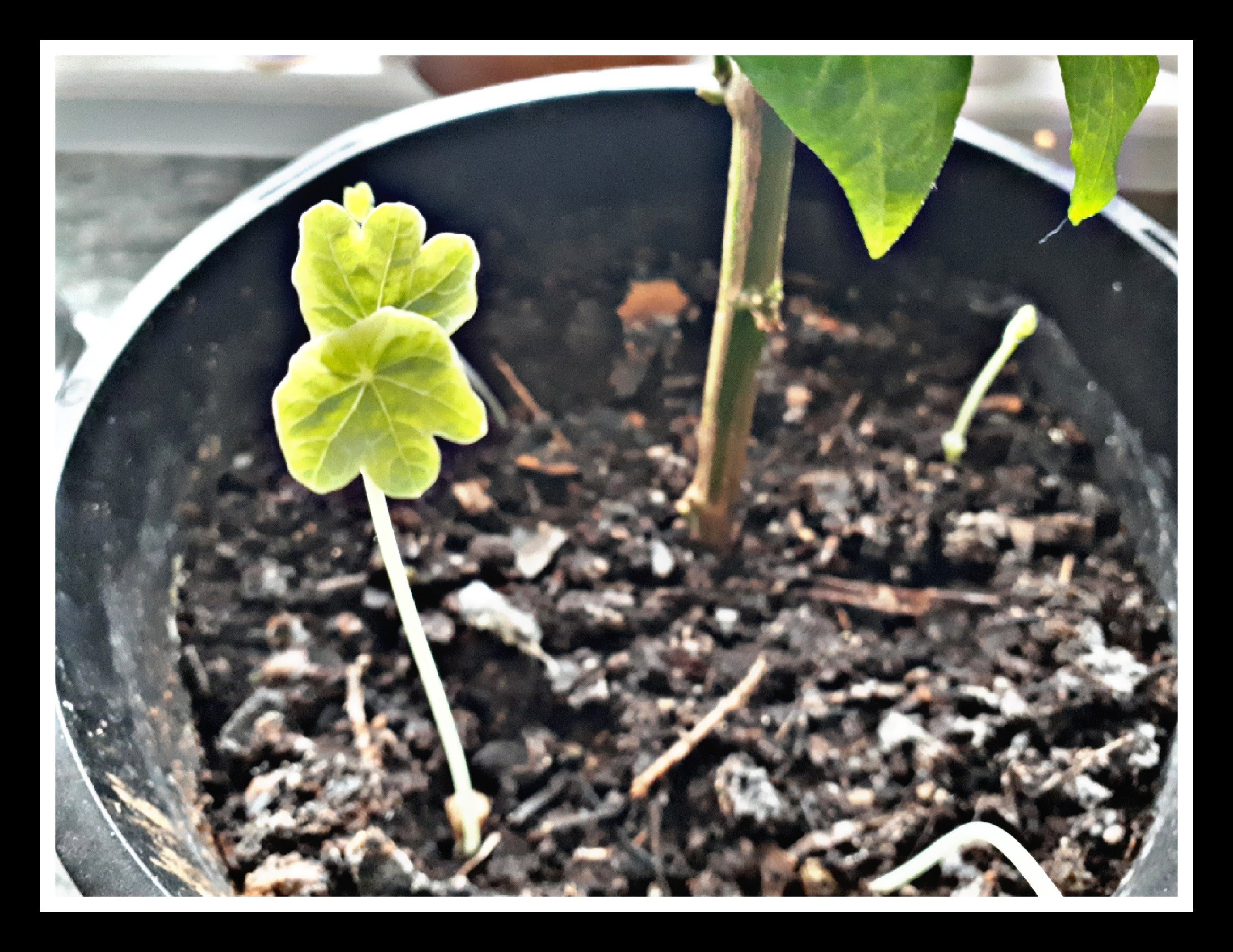
Nasturtium seedling growing beautifully in healthy soil.
Soil health is critical, and you may not think it but there is so much that goes in to what makes healthy soil, such as:
- Texture
- Structure
- Organic Matter
- Soil PH
- Nutrtients
- Living Organisms
I will explain each in brief below, but there are many books on the subject of soil that go into detail and if this sparks your interest you won't have to look hard to find lots of relevant information
Texture and Structure
The ratio of minerals in the soil determines the texture, causing sandy, loamy, or clayey soil. The texture then affects the amount of water and air that can permeate the soil, air and water being used to transport nutrients by the plant for growth and by the living organisms and bacteria.
The structure of the soil also affects how much air and water moves through it. Structure is determined by things like texture, plant root passages and earthworm tunnels.
Organic Matter
Organic matter is a vital key to soil health. Naturally occurring organic matter makes up about 5% of our soil, and is contributed by things like decomposing insects and plant matter. Gardeners like to add additional organic matter like compost and manure to their gardens because it is rich in nutrients, vitamins, and hormones that stimulate plant growth, and its structure and texture are optimal for plant roots to grow in. When organic matter combines with soil it can act as a magnet for micro-nutrients like calcium, potassium, and magnesium that then become readily available for use by the plant. Last but not least, important beneficial insects and bacteria in the soil feed off decaying organic matter.
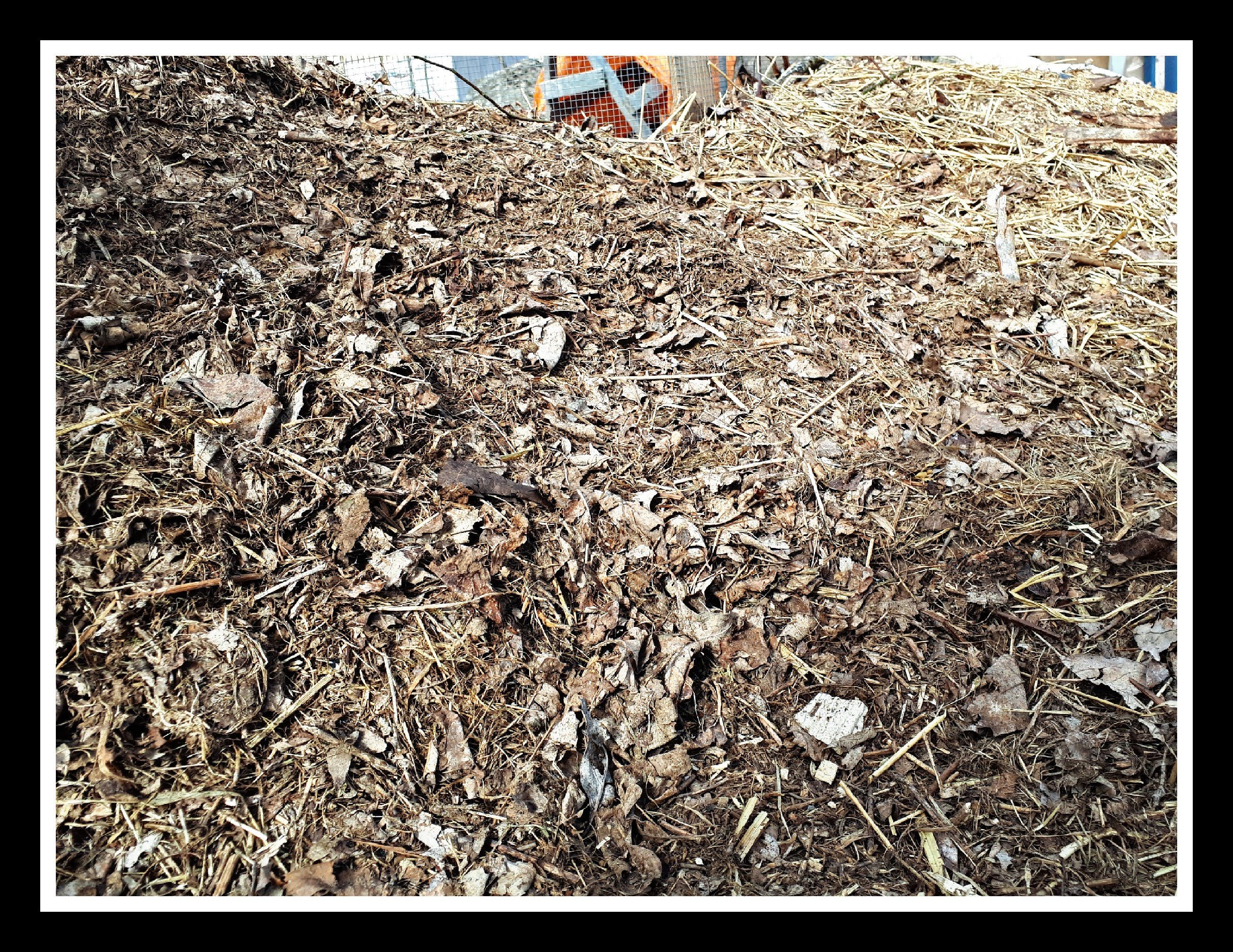
Last years crass clippings and shredded leaves piled high for the winter, breaking down into useful nutrients for the soil.
Nutrients and Soil PH
Nutrients are present in soil and supplemented by compost, manure, and organic or synthetic fertilizers.
Just like humans, plants need a variety of nutrients to grow optimally, with nitrogen(N), phosphorus(P), and potassium(K) being most important. Synthetic fertilizers mainly focus on NPK values while organic fertilizers supply these and other micro nutrients that plants can use. Compost and manure also provide NPK and a wide array of nutrients in their most natural and usable forms having been broken down by beneficial organisms.
Soil PH refers to the alkalinity or acidity of the soil, which can vary widely depending on where you are in the world or whats been added to your soil. Most veggies prefer soil that is 6.5-7.0, or slightly acidic.
You can purchase soil testing kits in most garden centers which will tell you the levels of the main nutrients and PH levels of your soil, giving you a base line to work with.
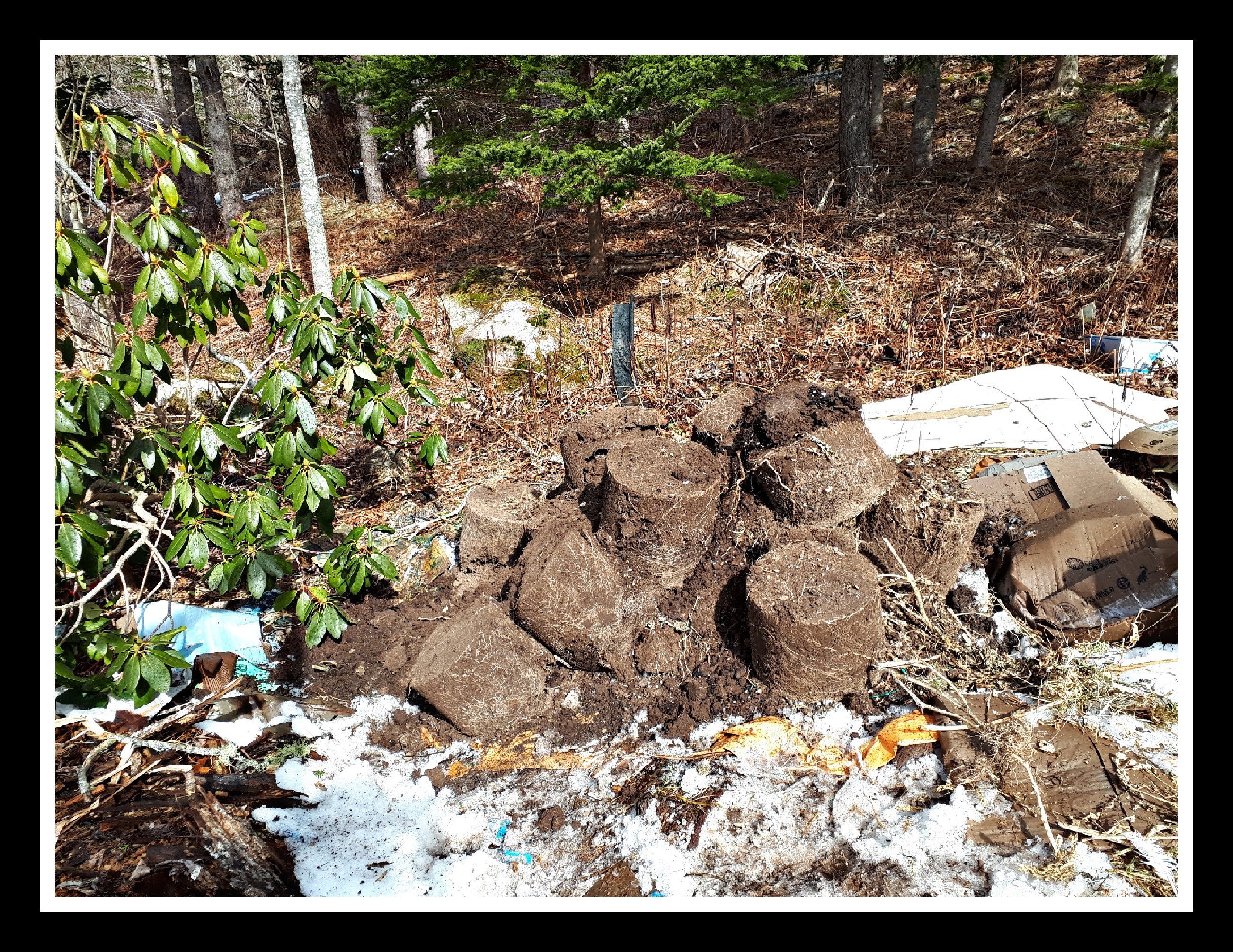
This pile of soil needs to be amended to improve nutrient levels for the new growing season
Living Organisms
We all have an uncountable number of Living organisms in and on our bodies. Beneficial bacterial (probiotics) are vital to many functions and continue to be studied extensively for their role in contributing to good health.
Soil has its own varieties of beneficial bacteria and fungi that contribute to plant growth and health, as well as to the health of those that eat the plants.
Furthermore, it has been shown that putting your hands in organism rich soil boosts your mood and your immune system
Other living organisms in soil refer to insects like beneficial earthworms, millipedes and ground beetles, as well as the not so good guys like beetle grubs and cutworms.
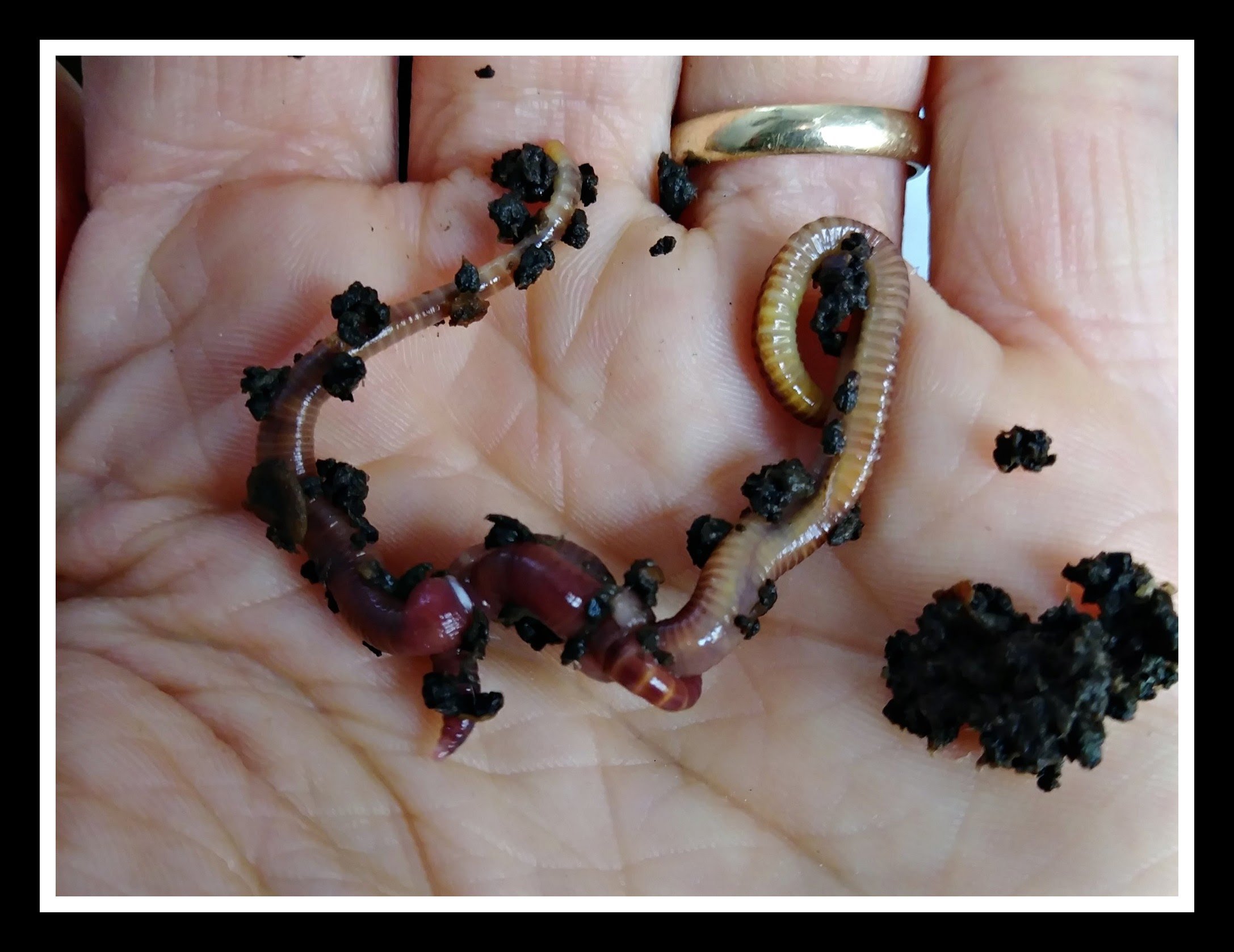
Worms are garden superstars, helping break down organic matter into nutrient rich casting that boost soil and plant health and creating tunnels that aerate soil.
Building Healthy Soil
After testing your garden soil you can determine which amendments to add.
Basic organic amendments include:
- Garden Lime
- Garden Sulphur
- Compost
- Aged Manure
- Various Fertilizers (fish, seaweed, bone meal, blood meal, feather meal, alfalfa, etc)
These will adjust PH and boost nutrient levels in depleted soils. How do you know if your soil is depleted? Well, if you've been gardening in the same place and not adding compost/manure regularly then it most likely is. Adding lots of compost/manure is always good practice in organic gardening, and if your soil test shows deficiency then its time to reach for the fertilizers. Don't add PH adjusters like sulphur or lime unless you know your soils PH, guessing and using the wrong thing will mess up your soil and your plants wont grow well.
Keeping your garden mulched or sowing a ground cover crop so that the soil isn't exposed to the elements is also a great way to build healthy soil. When the soil is tucked under a cover crop or layer of leaves or straw, the beneficial organisms can thrive and you wont lose nutrients to the elements and erosion.
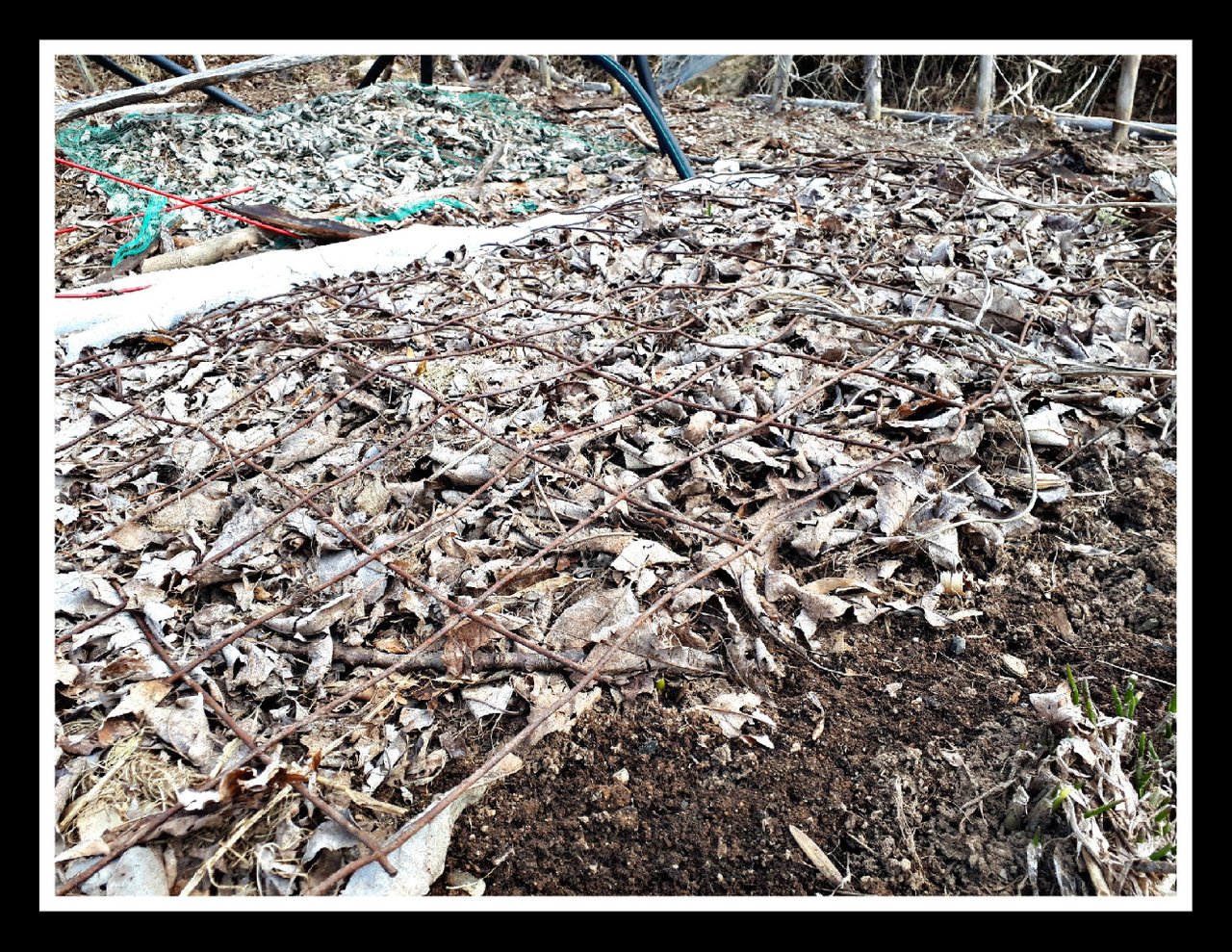
My garden beds are still tucked under leaves to shelter the beneficial organisms and prevent soil erosion and nutrient loss

With this taste of information you will be better able to understand just how important the health of soil is for growing a vibrant garden. When I first started gardening I had no clue, I just started planting and hoped for the best. I discovered fairly quickly that the soil in my garden was depleted and started taking steps to bring it back into a healthy balance. This year I wont have to buy manure for my main garden or greenhouse containers, thanks to my chickens and composting efforts!
Tomorrow I will head out to the greenhouse, which I started prepping for spring last week.
After taking steps to mix aged manure and fish fertilizer into last years soil heap, I will refill the buckets and sow some early spring greens!

Take Care,
@amymya
Join me on Sola!
Join me on Crypto Empire Discord
Join me on Family Protection Project Discord






